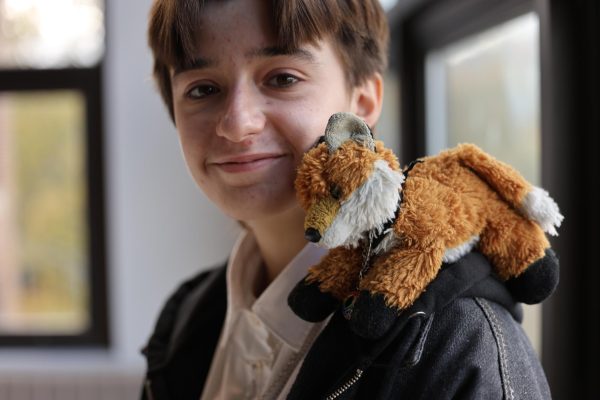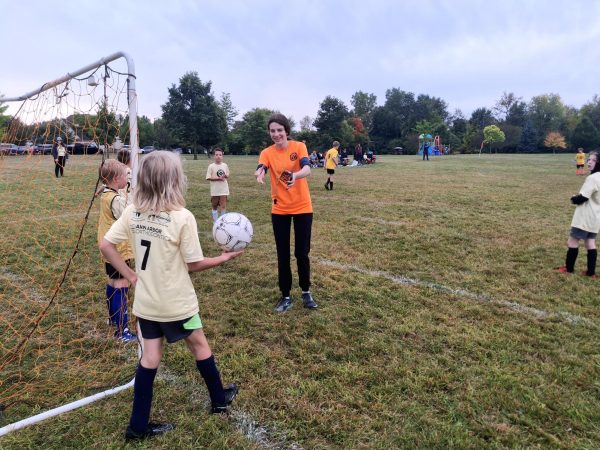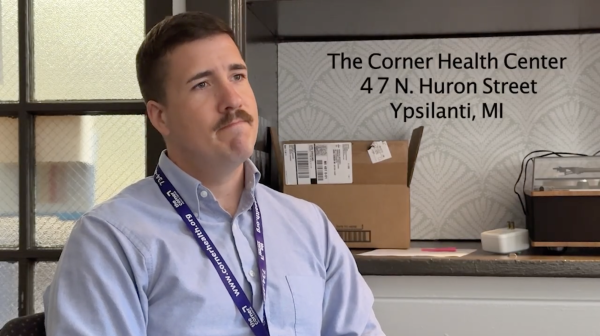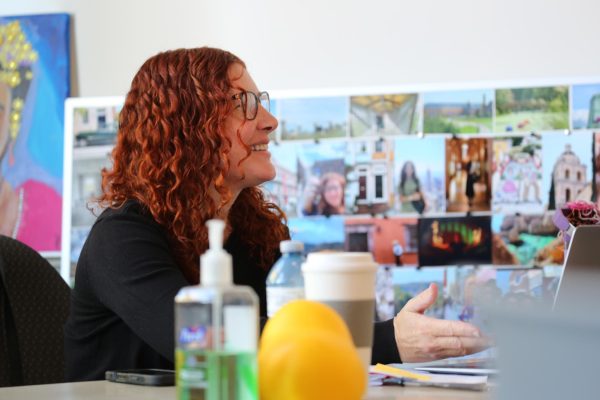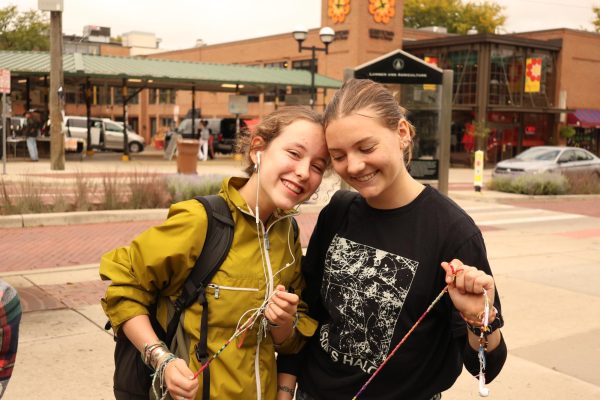Conquering Cancer
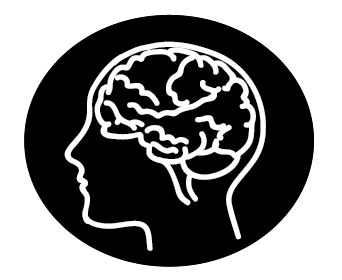
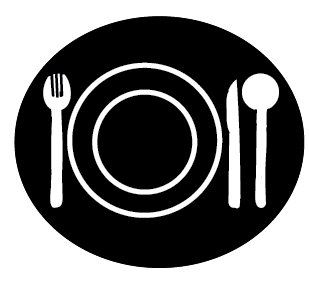
 A row of occupied chairs line the walls in a circle, all facing each other. Patients sit every other chair, almost avoiding sitting close to one another. IVs are positioned next to every chair, plastic bags each filled with a different type of poison waiting to be pumped into the next patient’s bloodstream.
A row of occupied chairs line the walls in a circle, all facing each other. Patients sit every other chair, almost avoiding sitting close to one another. IVs are positioned next to every chair, plastic bags each filled with a different type of poison waiting to be pumped into the next patient’s bloodstream.
Chemotherapy and radiation are common treatments for most types of cancer. Although they are very different types of treatment, they both have the same common effects on the body. Weeks of these treatments wears down health and compromises immune systems. Fortunately, there are a variety of different ways people can go about trying to prevent cancer, or recover if they have already been diagnosed
A Good Mental State
Joy and happiness make a difference when someone is trying to recover from an illness. According to the psycho-neuro immunology field, laughing genuinely for 10 minutes a day has up to 21 positive effects on the body and laughter improves immune systems, and helps mental health.
“The data is so powerful that they believe that when doctors ask theopening questions of a check up, they should ask ‘how many minutes a day do you laugh?’ and if they don’t, you as a doctor need to encourage them to laugh more in life, just the way you would tell them to not smoke, and if they don’t know what to do you can give them suggestions about joining a laughter club,” Dr. Jay Sandweiss, a board-certified Osteopathic Physician said. There are now several different types of activities people can do to help induce laughter and joy. Laughter yoga and workshops are just a few of the new kinds of things people can get involved in.
“I think support groups are a really good thing,” Sandweiss said. “Studies show that if you aren’t isolated and alone, and if you talk with people that are going through the same thing you’re going through it can be very helpful.”
Stress and sadness can be contributors to cancer because they inhibit adrenaline and release cortisol (inflammatory substances). While these hormones prepare the body for a potential injury, they also act as a fertilizer that helps tumors grow. The first emotions that are common when people find out they have cancer is fear and panic. People are often ill informed on how to go about treatment, and simply do what an oncologist recommends because that is the most common route. What people don’t know is that there are activities they can be doing on the side to help the recovery be easier and faster.
A Well-Balanced Diet
According to “Anticancer: A New Way of Life,” by David Servan-Schreiber, before World War II the way that food was grown and produced was much more organic and plant based than it is today. Today we use many harmful toxins and pesticides on our produce. The term “you are what you eat” is a very prominent part of how nutrition has changed. Before World War II, the animals that we ate were fed mainly grass, and had a balance of Omega 6 and Omega 3 in their diets. Now animals eat all types of steroids, antibiotics, GMO’s, and have much higher levels of Omega 6. High amounts of Omega 6 have been shown to lead to cancer growth.
“There are also natural substances that combat tumor growth and one of those is Turmeric and it has really high anti-inflammatory properties,” said Jim Perry, a cancer patient. “If you develop or are prone to developing a tumor one of the characteristics is inflammation, the other one is starting its own blood supply with blood cells. Green tea increases the available amount of blood vessels. So I have been drinking a lot of green tea and taking Turmeric supplements, and staying away from high omega 6 foods and concentrations of high omega 3 foods.”
It has also been proven that eating food that is whole, fresh, andin a natural state can take a load off your immune system. When artificial colors, flavors, and preservatives build up in the body, it can lead to more health problems. Refined sugar also suppresses your immune system and that has been proven in multiple studies.
A traditional western diet contains large amounts of carbohydrates and red meats. This type of diet inhibits immune cells, and ultimately ends up having negative long term effects on health. A Mediterranean diet, usually contains a lot of fruits and vegetables, olive oils and more fish and poultry. A Mediterranean diet is known to activate immune cells which helps fight off infection and illness. Therefore, eating a more wholesome and fresh diet will have better long term effects on a person’s health.
Daily Physical Activity
“Studies from researchers at the University of Michigan have shown that the more time you spend in nature with plants, and just outside the better,” Sandweiss said. “I think you need to get a lot of fresh air and exercise, as long as it’s not a crazy exercise that defeats your body. I think yoga of any kind is great.”
Being active, but not over doing it is important when getting healthy. After surgery, it is even more important to be active, because blood needs to pump in order to get better. After a surgery the body needs time to recover. Usually, whatever part of the body that was operated on is sore and stiff for a while after the operation. Physical Therapy is great way to increase range of motion and flexibility after a surgery. Simple exercises that don’t fatigue the body are very effective.
“My recommendations for patients undergoing chemo are what I would recommend for any patient, and that’s to do their home exercises to work on their range of motion,” said Andrew Squire, a certified physical therapist. “I would recommend walking after stretches, and light exercise.”
Taking small steps at a time is important, because there needs to be a starting point. Going on a four mile run right after a surgery or right after the end of chemo treatment is usually not possible, because physically the body can’t handle that intense of a workout.
“Time makes a big difference, and it takes chemo six to eight months tototally wear off, but when I did start to feel better and I could eat, I started going to the gym,” Linda Kidder, a Colorectal cancer survivor said. “I feel like I’m strong again and I can do all those things.”
“My mom died from Colorectal cancer so I spent my whole life worried I would get it,” Kidder said. “If you read about it, they tell you not to eat a lot of meats, fresh fruits, and vegetables. I spent my life doing that and look, I got it anyway. I guess there’s a genetic component that I don’t have any control over. But the fact that I did eat like that my whole life, and exercised regularly probably helped me out. Maybe I would’ve gotten it sooner. Maybe I would’ve died from it.”




